PM Anwar's achievements in China - Koon Yew Yin
Koon Yew Yin
Publish date: Mon, 03 Apr 2023, 09:46 AM
Barely four months in power, Prime Minister Anwar Ibrahim has made whirlwind tours to eight countries, namely – Indonesia, Brunei, Singapore, Thailand, Philippines, Turkey, Saudi Arabia, Cambodia and China.
Anwar’s main aim is to remove all trade barriers between Malaysia and other countries to encourage more trade for mutual benefit.
He landed on 30th March. During his short visit to China he has secured a historic commitment of RM170 billion in investments from China. He expects President Xi Jinping will help to complete the High Speed Rail between KL and Singapore.
On this trip, he is accompanied by Foreign Minister Datuk Seri Zambry Abd Kadir, International Trade and Industry Minister Datuk Seri Tengku Zafrul Tengku Abdul Aziz, Transport Minister Anthony Loke, Housing and Local Government Minister Nga Kor Ming, Science, Technology and Innovation Minister Chang Lih Kang, and Tourism Minister Datuk Seri Tiong King Sing.
This is a result of 19 memoranda of understanding between Malaysian and Chinese companies, as well as the round-table discussion with elite Chinese business leaders.
It is also the highest investment commitment from China to Malaysia. Anwar, in a brief announcement, said the investment commitment has given Malaysia confidence in a brighter future.
“I must thank the investors for their cooperation to achieve the commitment of RM170 billion,” he said after the Malaysia-China Business Forum here.
Meanwhile, International Trade and Industry (Miti) Minister Datuk Seri Tengku Zafrul Tengku Abdul Aziz told Malaysian reporters here that many of the MoUs are focused on green technology and the digital economy.
“We are also working to improve the spillover effects to the small and medium enterprises (SME) players so the investments can be felt throughout the business ecosystem.
“This will lead to an improvement of wages for more Malaysian workers, thus moving the country into a high-income nation,” he said on the sidelines of the forum.
He added that the prime minister is having back-to-back discussions with key decision-makers in the Chinese business sector who have flown in to meet him in Beijing.
“We want to leverage on the PM’s ability to convince investors to come to Malaysia. As for Miti, our responsibility is to facilitate the realisation of the committed investment.”
Among organisations and companies involved in the various MoU exchanges are the Associated Chinese Chambers of Commerce and Industry of Malaysia, China Chamber of Commerce for Import and Export of Machinery and Electronic Products, DRB-Hicom Bhd, Zhejiang Geely Holding Group Co Ltd, Sunsuria Bhd, IAT Automobile Technology Co Ltd, LBS Bina Group Bhd, Sany Group Co Ltd, Perbadanan PR1MA Malaysia, Construction Industry Development (M) Sdn Bhd, Perbadanan Kemajuan Negeri Perak and CSSC International Engineering Co Ltd.
Anwar is also scheduled to meet China’s Premier Li Qiang in the evening, where the two will have a bilateral meeting at the Great Hall of the People here.
The two leaders will be signing three government-to-government MoUs. They are:
i. First Protocol to Amend the Agreement on Expanding and Deepening Economic and Trade Cooperation between the Government of Malaysia and the Government of the People’s Republic of China. This involves the International Trade and Industry Ministry and its Chinese counterpart.
ii. Protocol of Phytosanitary Requirement for the Exportation of Jackfruit to China between the Agriculture and Food Security Ministry and China’s General Administration of Customs.
iii. Protocol on Quarantine and Health Requirements for the Import of Aquaculture Feed from Malaysia to China.
Li will also host a state banquet to welcome Anwar.
Yesterday, Chinese President Xi Jinping and Anwar had a bilateral meeting at the Great Hall of the People.
In remarks at the meeting, Xi said Malaysia had been the first Asean country to establish diplomatic relations with China, and noted that this year also marked the 10th anniversary of a comprehensive cooperative partnership between China and Malaysia.
The two countries will next year celebrate their 50th anniversary of diplomatic relations.
Anwar meanwhile, had described his official visit as an honour for Malaysia, and that Malaysians “owe to China a big deal in term of investment, economic achievement and construction”.
Prime Minister Datuk Seri Anwar Ibrahim has urged Malaysian businesses overseas to facilitate more investments back into the country.
He said the primary focus is rebuilding the country with the help of domestic and foreign investments.
“The time is now. It’s all right to invest outside of Malaysia but what is needed is to refocus investments back into Malaysia,” he told nearly 300 guests at an iftar event hosted by Malaysian Chamber of Commerce and Industry in China (Maycham China) here this evening.
The event also saw the attendance of many Chinese Muslim leaders and business delegations. In his speech, he also had a message for cabinet members who are accompanying him during his official visit to China.
He reiterated for the ministers to “do whatever that is required” to ease doing business in Malaysia, especially avoiding delays and incurring additional costs.
Anwar paid a courtesy call on Xi Jinping at the Great Hall of the People. The prime minister was greeted by Xi upon arrival before the two proceeded to a meeting that lasted almost an hour.
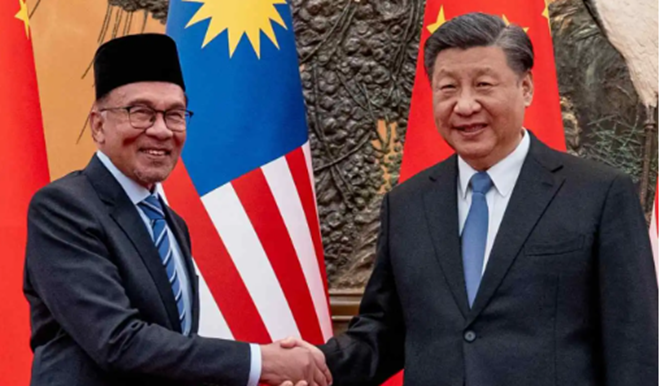
He was also among the first few foreign leaders to visit Beijing after Xi was re-elected for a precedent-breaking third term, and the appointment of Li Qiang as premier earlier this month.
Prime Minister Datuk Seri Anwar Ibrahim kicked off his last day in China with a meeting featuring 50 captains of industry here. In the one-hour roundtable, he had the opportunity to receive feedback, among others, from the high-profile business leaders in China.
They represent some 36 companies in high-tech industries, digital economy, automotive, services, manufacturing, import-export, and infrastructure.
The atmosphere in the meeting was described as optimistic and the representatives were said to be eager to bring investments into Malaysia.
Organised by the Malaysian Investment Development Authority and the Malaysia External Trade Development Corporation, it is an opportunity for the prime minister and the accompanying minister to engage directly with the business leaders.
Anwar is also scheduled to meet China’s Premier Li Qiang in the evening, where the two will have a bilateral meeting at the Great Hall of the People here.
Li is also hosting a state banquet to welcome Anwar.
China is one of eight countries Anwar has visited since he took office some four months ago.
Anwar, in his keynote speech at the Malaysia-China Business Forum that took place immediately after, said the roundtable was an unprecedented gathering that has not been seen in recent years.
He also shared that he had “meaningful discussions” with the business leaders and is optimistic about the future of Malaysian businesses.
My comment:
I hope PM Anwar and all the delegates accompanying him are aware of the advantages and disadvantages of International Trade.
International trade is a productive practice that allows individuals, organizations, and countries to flourish economically. It is the scientific way of saying “commerce” or “buying and selling.” The advantages and disadvantages of international trade create risk and reward opportunities for both businesses and countries.
It opens foreign markets, increases competition, and diversifies the services and products for customers. Exporting is beneficial for countries. In trade, a country is exporting to make profits and improve the economic situation. It also improves the quality standards at affordable prices. Now let’s get on a concise summary of the advantages and disadvantages of International Trade.
Advantages of International Trade
- Establish customer base in international markets
- Benefit from exchange rate fluctuations
- Encourage competition to improve quality and affordability
- Lowers risk and increases rewards
- Foundation to grow your business
- Low production, material, and operational costs
- Employment opportunities and economic boost
Disadvantages of international trade
- Problems created due to Cultural differences
- Political Risk Factors
- Fluctuations and Exchange rate issues
- Cyber security and information theft
- Managing Credit Risk
- High Tax rates and Intellectual property theft
- Unemployment and bankruptcy
More articles on Koon Yew Yin's Blog
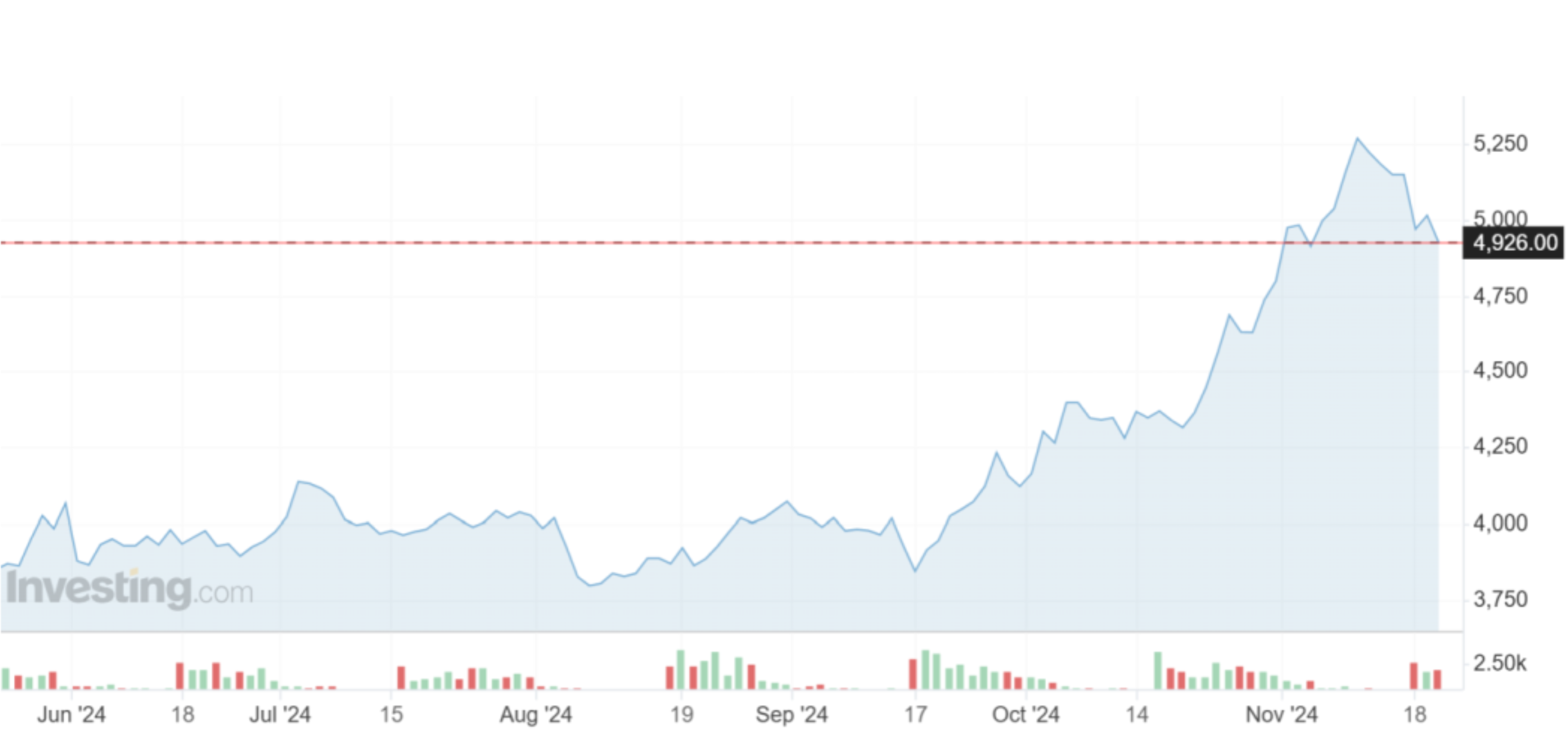
Created by Koon Yew Yin | Nov 22, 2024
All plantation companies are reporting better profit for the quarter ending September when CPO price was about RM 3,800 per ton.
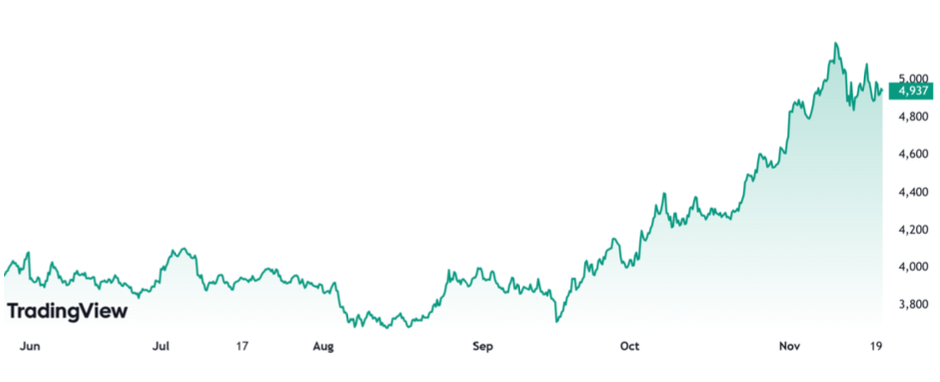
Created by Koon Yew Yin | Nov 21, 2024
Indonesia is the biggest palm oil producer in the world. Indonesia plans to implement biodiesel with a mandatory 40% blend of palm oil-based fuel from Jan. 1 next year, a senior energy ministry offici
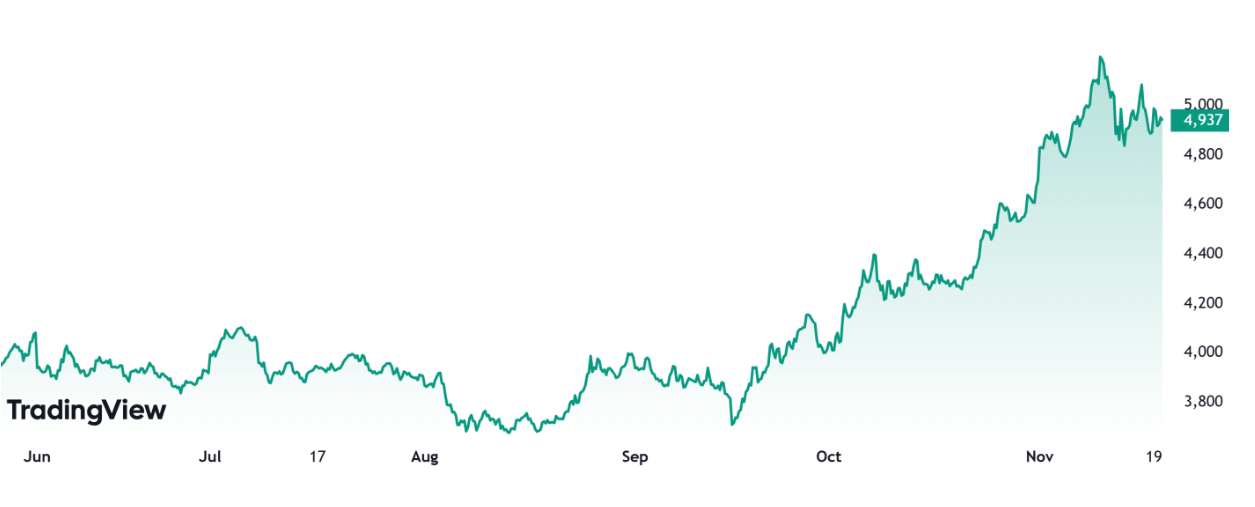
Created by Koon Yew Yin | Nov 20, 2024
Indonesia plans to implement biodiesel with a mandatory 40% blend of palm oil-based fuel from Jan. 1 next year, a senior energy ministry official said recently, lifting prices of the vegetable oil...
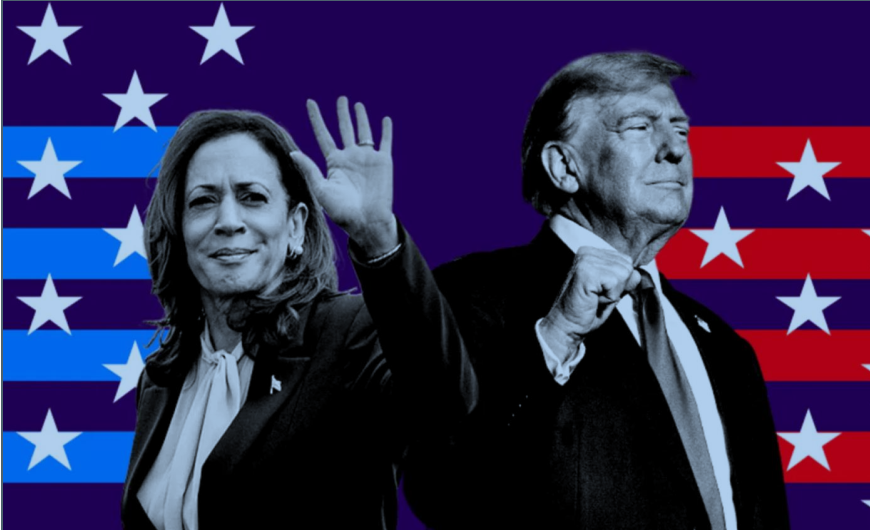
Created by Koon Yew Yin | Oct 30, 2024
Latest poll on 30th Oct 2024
Created by Koon Yew Yin | Oct 30, 2024
Latest poll on 30th Oct 2024
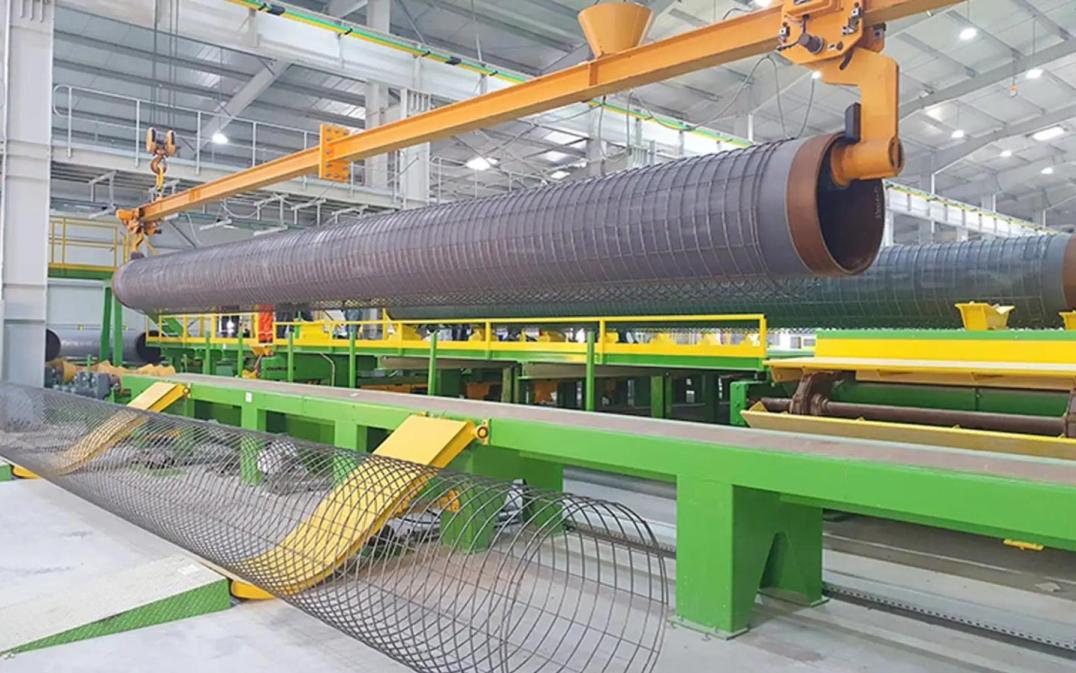
Created by Koon Yew Yin | Oct 25, 2024
The group is expected to deliver better profits and revenue from its pipe coating, engineering, and bioenergy segments.
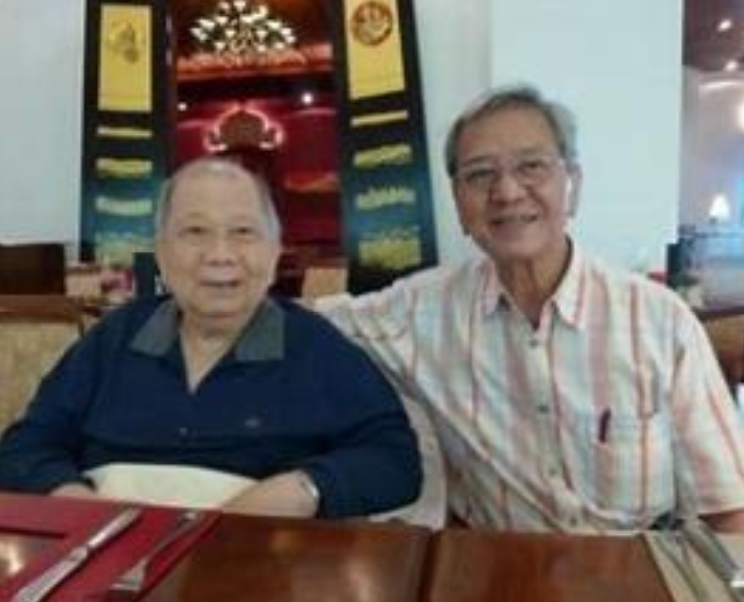
Created by Koon Yew Yin | Oct 14, 2024
Today I read the article by Murray Hunter titled “A Visit to the Malaysian Communist Party tunnels in Betong, Thailand”, which is an important part of Malaysia’s history.
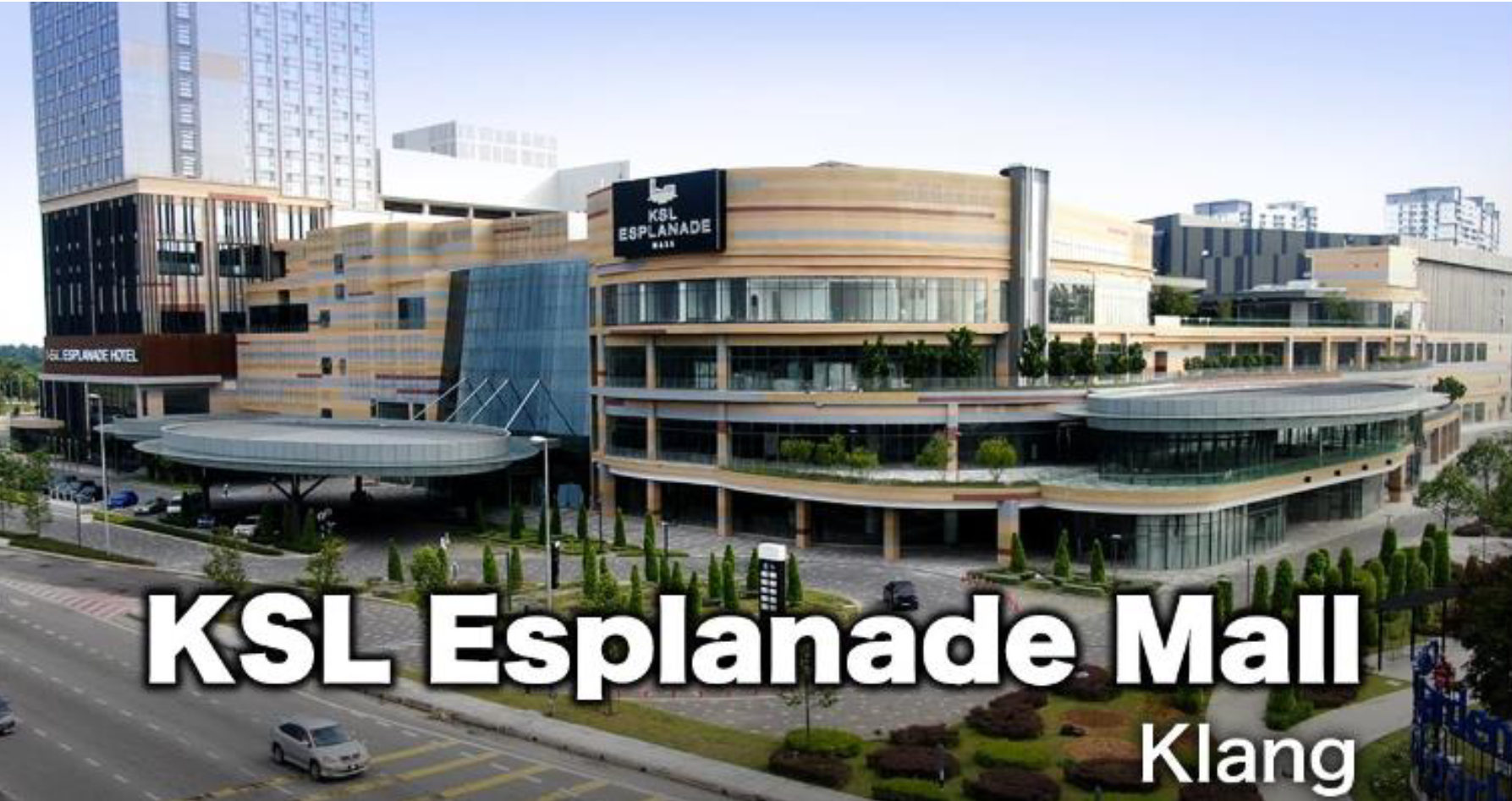
Created by Koon Yew Yin | Oct 04, 2024
KSL is still the cheapest based on a 4.4 PE ratio, which means its share price should continue to go up. Unfortunately, there are a few small investors who always queue to sell at cheaper prices...
Created by Koon Yew Yin | Oct 04, 2024
KSL is still the cheapest based on a 4.4 PE ratio, which means its share price should continue to go up. Unfortunately, there are a few small investors who always queue to sell at cheaper prices...
Created by Koon Yew Yin | Sep 06, 2024
Water pollution is a huge challenge for freshwater in the UK, impacting our rivers, streams, and lakes and the wildlife that call them home.


















